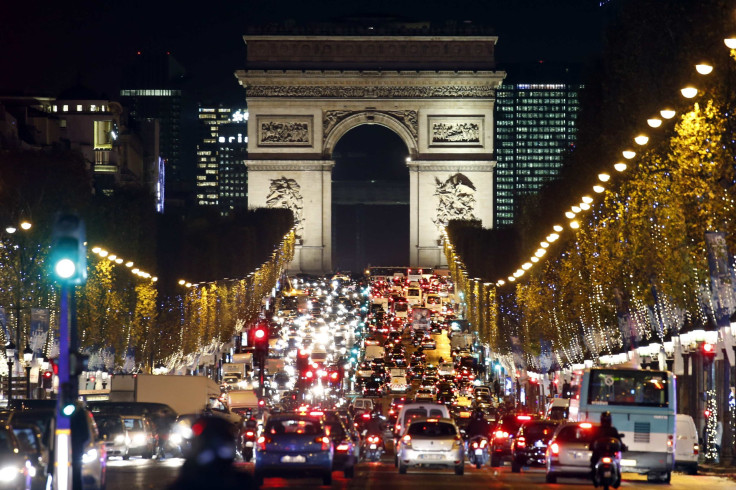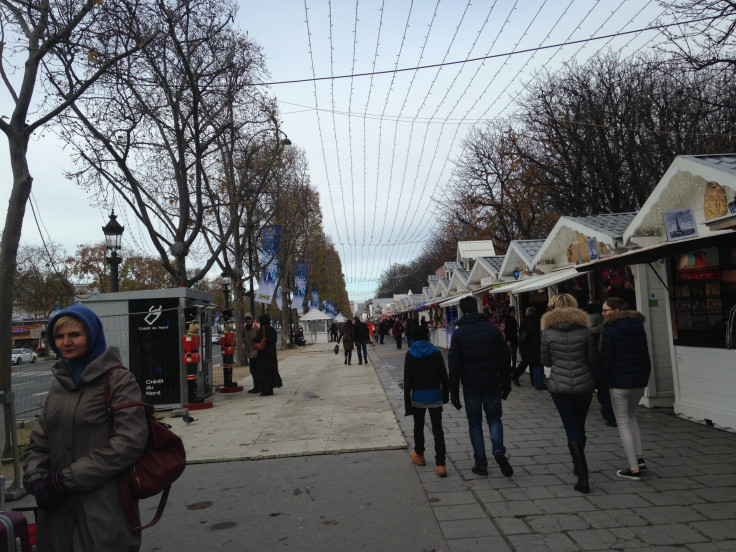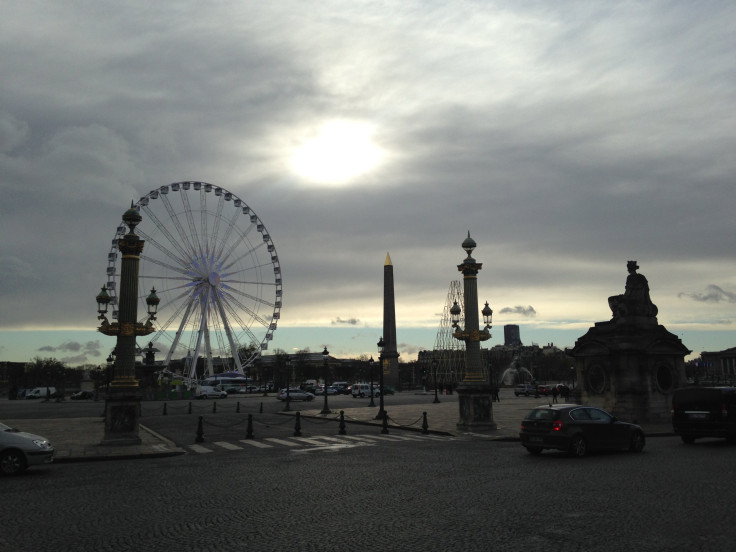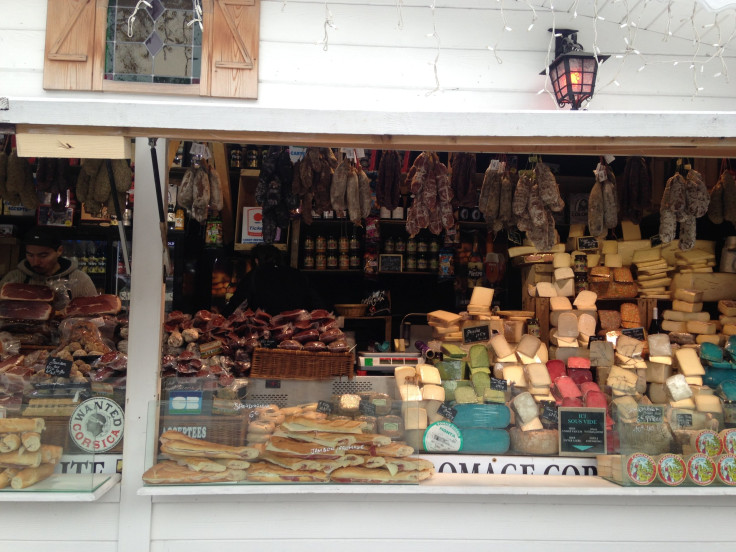France Holiday Tourism Economy 2015: After Paris Terror Attacks, Business, Artisans And Christmas Markets Struggle To Draw Seasonal Tourists

PARIS -- Quentin DuBus, 29, has been making handcrafted soaps with his family in the south of France for 10 years. They have come up to the Christmas Market in Paris from the southern city of Marseille to sell their products for the past five years. Soap from Marseille is known throughout France as some of the finest, and the small rose- or lavender-scented bars draw customers from all over the country as well as from abroad. This year, however, on the first weekend of the annual Christmas Market, or Marché de Noel, on the Champs-Élysées, his stall lacked visitors.
DuBus said he understood the fear of the thousands of tourists, many from the U.S. as well as throughout Europe, who had canceled their holiday trips to Paris following the Nov. 13 terrorist attacks on the capital city, which left 130 dead and several hundred more wounded. “If this had happened in New York, in Miami, I wouldn’t go visit there either,” Dubus said, adding, “It’s all too fresh.”
Paris is the third-most-visited city in the world, with millions of tourists coming each year to admire the Eiffel Tower, Notre Dame cathedral and the sights throughout the historic city that have made it a favorite with visitors worldwide. Following the shocking terror attacks last week, however, French airlines and hotels have seen an unprecedented number of cancellations for the holiday season. Christmas through New Year's Eve has historically been a booming tourist season for the city, but now, as big French companies complain of losses, small businesses and artisans are also struggling to cope with the dip in demand.
DuBus and his family have started considering using Facebook or other social media to encourage people to come to the outdoor market -- something they had never had to do before. The market, according to DuBus, is not just about the tourism industry in Paris; it is about celebrating and defending traditional craftsmanship and French products. “We are protecting above all these products that are made in France,” he said, “and there are fewer and fewer of them.”

Christmas is a time when the department stores near the Palais Garnier opera house deck out their windows with lavish displays and when the City Of Light glows with garlands and lanterns strung up across the main boulevards. Tourism accounts for 10 percent of the total French gross domestic product and is one of the country's most important industries, providing 9.5 percent of the nation’s jobs.
The tradition of the Christmas Market has lasted as a practice in France and many surrounding European countries, such as neighboring Germany. There are several locations throughout Paris, and the market at the Champs-Élysées is one of the largest. Close to 200 stands sell homemade toys, scarves, chocolate and gifts, lining the boulevard from the Arc de Triomphe to the Tuileries Garden.
Both tourists and French families come in droves annually to the Champs-Élysées market. It has been a lucrative endeavor for the city, with organizers in 2013 estimating the seven-week-long fair drew over 1 million people and earned close to 1 million euros, as reported by the French magazine Les Echoes.
“Before there were so many people that they had to build barricades, you couldn’t even move,” said Paola Rincón, 27, who has worked at a stand selling posters and paintings of Paris monuments at the market for the past two years. “Since it opened Wednesday, there hasn’t really been anyone,” she said.

Fears of terrorism at the markets are not unfounded; they have been targeted previously. In the northern city of Strasbourg in 2000, a group of Islamic terrorists attempted to blow up the Christmas Market. Police thwarted the plan before any bombs were detonated, and the mayor of Strasbourg almost canceled the event this year.
Businesses ranging from artisans and craftsmen to giant corporations have been hurt by the fallout from last Friday’s attacks. By Thursday, Air France's booking cancellations had exceeded new reservations, and other carriers that fly to the region, including Air Berlin and Norwegian Air, also suffered losses. Sources from Air France told Reuters that it was too soon to know what impact Friday’s events would have on its business in the long term but that it was ready to adapt.
Some hotels saw more than half of their reservations canceled immediately following the attacks, while many museums, cafés and restaurants have been similarly deserted. Parisians have tried to boost attendance at their local bistros by launching campaigns on Facebook and other social media sites, but businesses have felt the losses across the city.

Many vendors at the Christmas Market Saturday said they were optimistic that people would come back to Paris, but that everyone, the Parisians especially, needed time to heal. “There is certainly fear,” said Magali Atlan, 48, who makes gold and silver handcrafted bookmarks, adding, “but I think it’s more that we still have so much mourning to do.”
The techniques that Atlan uses to make her bookmarks are centuries-old, and she said it is this sense of tradition, this attention to detail, that draws visitors to France time and time again.
The markets represent a spirit of French tradition and culture, Atlan said. “Tourism is important, but it’s the culture of France that makes them come to visit,” she said. “It’s what they come here to find.”
© Copyright IBTimes 2024. All rights reserved.






















